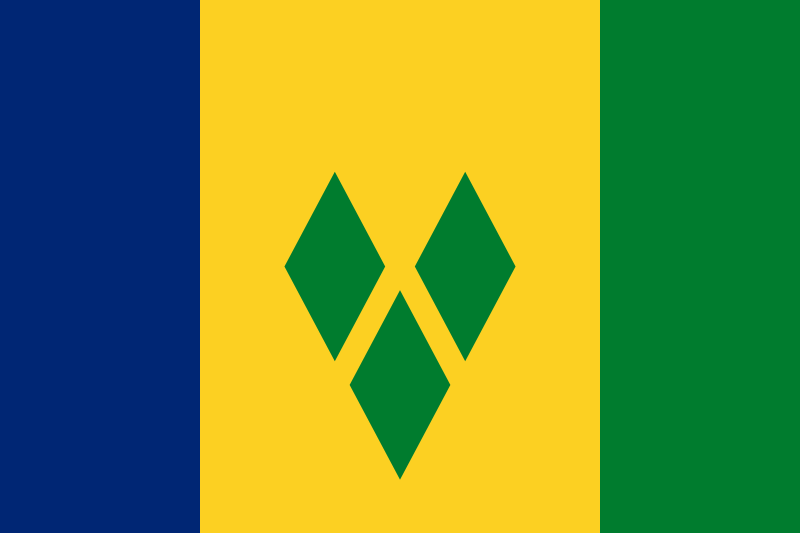2 September 2021, Kingstown, St. Vincent and The Grenadines – Fisherfolk in St. Vincent
and the Grenadines met on Tuesday, September 1 to carefully examine why the special
needs of the sector were not taken fully on board by social protection measures during the
recent shocks of La Soufriere volcano and the COVID-19 pandemic. Under the Global
Environment Facility funded Developing Organizational Capacity for Ecosystem Stewardship
and Livelihoods in Caribbean Small-Scale Fisheries project, being implemented by The Food
and Agriculture Organization of the United Nations (FAO), the stakeholder meeting worked
on developing a Shock-Responsive Social Protection Strategy and Action Plan for the Small-
Scale Fisherfolk of St. Vincent and the Grenadines.
Well managed social protection systems ensure that every person enjoys a basic set of
rights, services and facilities, that includes coverage for life cycle risks such as loss of
employment and injury, as well as access to good sanitation, water, health and education,
and also preventive measures such as insurance schemes. Shock-responsive social
protection guarantees social protection services that can cope with shock.
At the stakeholder’s meeting that brought together some of St. Vincent and the
Grenadines’s strongest industry advocates and participants, the fisherfolk spoke
passionately on some matters of concern. Some of them had decades of experience and
wisdom from working in the industry and applauded the effort to secure shock-responsive
social protection for the small-scale fisherfolk, especially as St. Vincent and the Grenadines
is prone to a range of hazards apart from volcanic eruptions.

Picture 1: Participants having discussions on shock responsive social protection in the Saint
Vincent and the Grenadines Fisheries Sector
The significant ashfall from the eruption of La Soufriere in April 2021 had far-reaching
effects on the seawater all around the country, changing both the sea and the seabed, and
the cloudy, dirty waters drove fish away from St. Vincent and the Grenadines. This disrupted
all fishing operations, from harvests to sales and exports.
During a data gathering survey to inform the ideas for the strategy and plan, fishers pointed
out that in the aftermath of the La Soufriere eruptions, the cash payment plan offered as a
social protection measure, was worked out based on land zone divisions. This did not work
out so well for fishers in other zones, as they explained that fishing does not operate on the
land – all fishing areas and travel routes through coastal waters were disrupted or off-limits,
and there were no sales to customers who normally live in the red and orange zones. Even
on their return home, fishers in the northern zones continue to face losses, as every time
there is a lahar, the seawater is too muddy for spearfishing and seine fishing.
Among the fisherfolk, there was doubt and frustration because the needs of the industry did
not appear to be a national priority. A renowned vendor and fisher, Mr. Eocen Victory
remarked that “It’s a good initiative, but I am concerned whether the plan would be
implemented”. Despite the hurdles faced, these industry stalwarts recognized the enormous
relevance of shock-responsive social protection for safeguarding fisheries performance
overall and for protecting the industry’s actors during rocky times.
President of the Goodwill Fisherman’s Cooperative Society, Mr. Andre Liverpool, said “The
plan shows that we are making the link between ending poverty and achieving economic
growth.” Liverpool also pointed out, “It is important too that we get and use data to ensure
that we are managing the industry for sustainability”. Mr. Vibert Pierre, President,
Barrouallie Fisheries Development Cooperative Society, liked the fact that the plan was
pointing to areas of social protection where fishers’ needs would be specifically addressed.
Pierre noted that “Women are often involved in homecare, and so when fishers’ livelihoods
suffer, the well-being of their womenfolk and families suffer as well”.

Picture 2: Three experienced fishing industry representatives were seen engaged in
thoughtful deliberations during Tuesday’s meeting to discuss shock-responsive social
protection for SVG fisherfolk: Mr. Vibert Pierre (sitting), Mr. Andre Liverpool (standing at
left) and Mr. Eocen Victory (standing at right).
The fisherfolk will work over the coming days to review and finalise the plan that is expected
to include actions to build greater awareness among fisherfolk for social protection,
strengthen fisherfolk participation in existing national social protection programmes, and
improve the much-needed coordination among government ministries for optimised cost-
efficiency and maximum impact benefits. Building an organised social protection network
will ensure that the industry is more resilient for dealing with shocks and recovery needs.
In his reflections on the importance of the present initiative, Senior Fisheries Officer, Kris
Isaacs said, “Social protection strategies and initiatives are critical in building resilience and
positively impacting food security, nutrition and human capital development in various
sectors but especially in the fishing industry which plays a key role in putting food on the
plates of Vincentians.” Isaacs added that, “Following a crisis such as the La Soufriere volcanic
eruption, shock-responsive social protection plans/ programmes can help restore and
rebuild industry functions, rehabilitate critical infrastructure and build resilience for future
crises. That’s what makes the present initiative so critical to ensuring effective support and
protection for our fisherfolk!”

Picture 3: fishers at the Kingstown Fish market wharf



